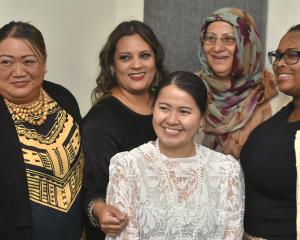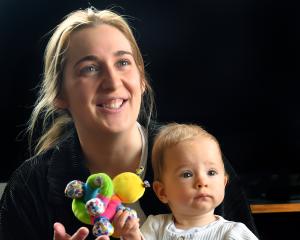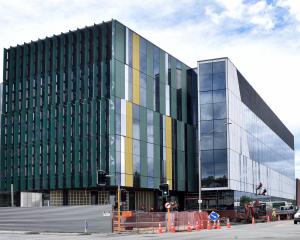
Since Pharmac started funding automated insulin delivery (AID) devices for people with type-1 diabetes late last year, it has been discovered New Zealand's public health system is not equipped to meet demand.
While University of Otago women and children's health professor Ben Wheeler said he was pleased the equipment was now available for free, demand for it was likely to skyrocket by up to 400% in coming years.
So the Health Research Council (HRC) has awarded him a health delivery grant worth nearly $1.4million to develop a new model of care for faster and more equitable access to AID for people with type-1 diabetes.
Prof Wheeler said type-1 diabetes affected up to 25,000 people in New Zealand, and about 15%-20% of them were now using AID.
Wider access to the Pharmac-funded "gold standard" technology meant demand for AID-use by people with type-1 diabetes would increase to 70%-80% in the coming years, an increase of up to 400%, he said.
"Unfortunately, with this widened access, the public health system is not meeting the demand, and many are missing out or experiencing large waiting lists to access training and systems.
"Some regions have even suspended training due to health workforce challenges."
Of the 12,000-15,000 people with type-1 diabetes who were expected to seek AID training to use the technology at present, only 500-1000 people were able to actually receive it annually, he said.
"This is creating massive inequity based on ethnicity, location (rural versus urban) and socioeconomic status."
Prof Wheeler said his research aimed to provide a solution by evaluating a model of AID training and remote support developed in Otago's world-leading AID research trials.
It also aimed to remove "postcode lotteries" to access by providing fly-in-fly-out training throughout New Zealand, and remote support regardless of home region/postcode.
"We hope to demonstrate that our proposed model of care can be scaled up and lead to fast, effective, safe and equitable access to advanced diabetes technology throughout New Zealand."
Prof Wheeler was one of 12 University of Otago researchers to receive funding in the latest HRC funding round, totalling more than $4.6m.
Others receiving HRC grants were: primary healthcare and general practice Assoc Prof Benjamin Darlow ($1,399,989); medicine Assoc Prof Hamish Jamieson ($1,399,974); psychological medicine Dr Sarah McKenzie ($170,565); public health Dr Fiona Imlach ($30,000); chemistry Dr Nicholas Green ($29,015); medicine Prof Suetonia Green ($29,832); psychological medicine Dr Snita Ahir-Knight ($30,000); oral sciences Prof Warwick Duncan ($29,911); management Dr Paula O'Kane ($29,768); human nutrition Dr Meredith Peddie ($29,652); and management Dr Andrea Clark ($30,000).
Nine University of Otago researchers were also awarded funding from the New Zealand Lottery Grants Board, totalling more than $1 million.
They were: women's and children's health researcher Prof Ben Wheeler ($119,957); preventive and social medicine Prof David McBride ($54,878); psychological medicine Neda Nasrollahi ($159,944); Pacific health sciences Dr Jane Taafaki ($159,877); medicine Prof Patrick Manning ($99,080); obstetrics and gynaecology Dr Mak Sarwar ($119,980); medicine Dr Timothy Prickett ($112,205); medicine Assoc Prof Hamish Jamieson ($73,872); international health Dr Sherly Parackal ($119,061); obstetrics, gynaecology and women's health Dr Parimala Kanagasabai ($119,726); and surgery Assoc Prof Jacqueline Keenan ($58,362).














